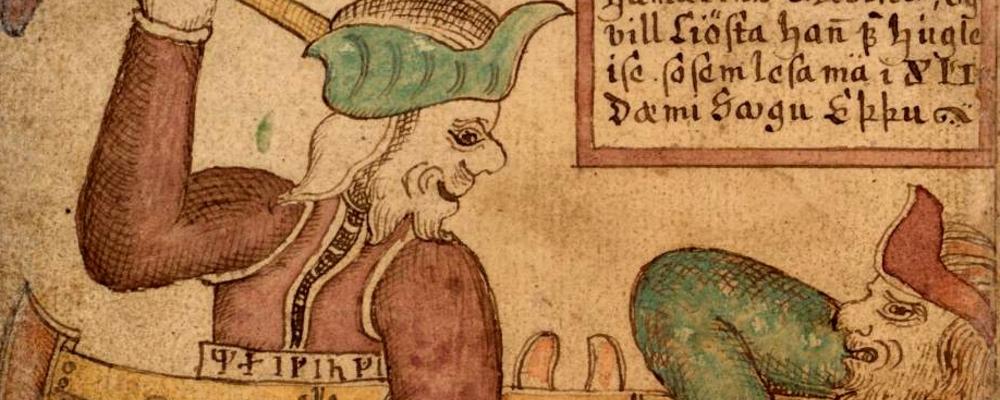Bild

Þór och Hymir fiskar efter Midgardsormen. Handskrift SÁM 66, 1700-tal, Stofnun Árna Magnússonar á Íslandi.
Constructing Pre-Christian Scandinavia, from Medieval Magic to Modern Philology
Kultur & språk
Medeltidskommittén vid Göteborgs universitet bjuder in till vårens första seminarium. Öppet för allmänheten!
Seminarium